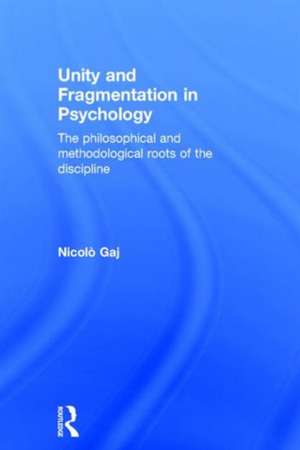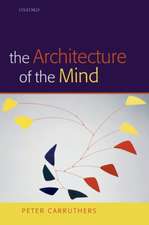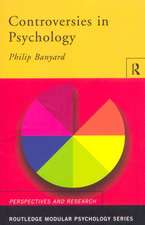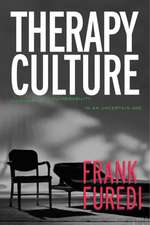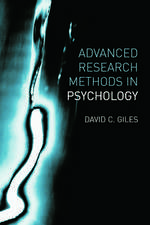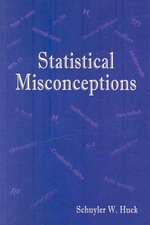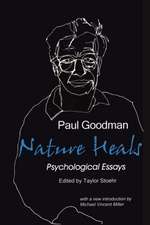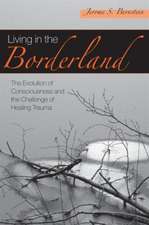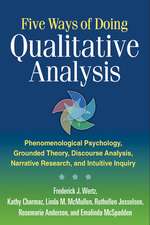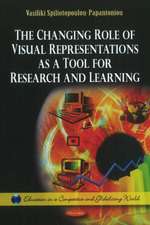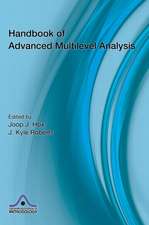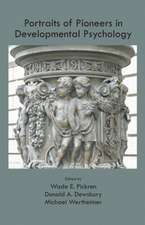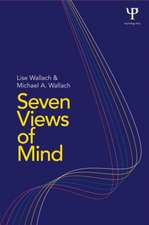Unity and Fragmentation in Psychology: The Philosophical and Methodological Roots of the Discipline
Autor Nicolò Gajen Limba Engleză Hardback – 18 mar 2016
| Toate formatele și edițiile | Preț | Express |
|---|---|---|
| Paperback (1) | 206.59 lei 43-57 zile | |
| Taylor & Francis – 21 mar 2016 | 206.59 lei 43-57 zile | |
| Hardback (1) | 513.20 lei 43-57 zile | |
| Taylor & Francis – 18 mar 2016 | 513.20 lei 43-57 zile |
Preț: 513.20 lei
Preț vechi: 989.51 lei
-48% Nou
Puncte Express: 770
Preț estimativ în valută:
98.23€ • 106.74$ • 82.57£
98.23€ • 106.74$ • 82.57£
Carte tipărită la comandă
Livrare economică 21 aprilie-05 mai
Preluare comenzi: 021 569.72.76
Specificații
ISBN-13: 9781138118904
ISBN-10: 1138118907
Pagini: 202
Dimensiuni: 156 x 234 mm
Greutate: 0.43 kg
Ediția:1
Editura: Taylor & Francis
Colecția Routledge
Locul publicării:Oxford, United Kingdom
ISBN-10: 1138118907
Pagini: 202
Dimensiuni: 156 x 234 mm
Greutate: 0.43 kg
Ediția:1
Editura: Taylor & Francis
Colecția Routledge
Locul publicării:Oxford, United Kingdom
Public țintă
Postgraduate and ProfessionalCuprins
Chapter 1: Unity of Method
Chapter 2: Unity of Language
Chapter 3: Unity of Laws
Chapter 4: Unity of Objects
Chapter 5: Evidence of Fragmentation in Psychology
Chapters 6: Introduction to the Section
Chapter 7: Gregory Kimble’s Functional Behaviorism (FB)
Chapter 8: Arthut Staats’ Psychological Behaviorism
Chapter 9: Gregg Henriques’ Unified Theory of Psychology
Chapter 10: Norman Anderson’s Information Integration Theory
Chapter 11: Robert Sternberg and colleagues’ Unified Psychology
Chapter 12: A Fragmented Clinical Psychology
Chapter 13: Empirical Research: Psychology as a Science and as a Profession
Chapter 14: Conclusions
Chapter 2: Unity of Language
Chapter 3: Unity of Laws
Chapter 4: Unity of Objects
Chapter 5: Evidence of Fragmentation in Psychology
Chapters 6: Introduction to the Section
Chapter 7: Gregory Kimble’s Functional Behaviorism (FB)
Chapter 8: Arthut Staats’ Psychological Behaviorism
Chapter 9: Gregg Henriques’ Unified Theory of Psychology
Chapter 10: Norman Anderson’s Information Integration Theory
Chapter 11: Robert Sternberg and colleagues’ Unified Psychology
Chapter 12: A Fragmented Clinical Psychology
Chapter 13: Empirical Research: Psychology as a Science and as a Profession
Chapter 14: Conclusions
Recenzii
"Gaj has produced a book at the intersection of psychology and philosophy, and shows sophistication in both areas. He tackles the important question of unity in psychology by drawing on the insights of philosophy. This work should be of value to readers from both fields." George Stricker, Ph.D., American School of Professional Psychology at Argosy University, Washington DC
"Psychology has long suffered from an identity crisis. Is this often fragmented field one discipline or many? If it is indeed one field, what undergirds it? How does psychological research relate to psychological practice? This important and provocative book should help to launch a greatly overdue debate regarding the unification of psychology and the extent to which it is a desirable goal in its own right. Researchers, practitioners, teachers, and students interested in the future of psychological science will find this book to be a valuable and stimulating read." Scott O. Lilienfeld, Ph.D. Samuel Candler Dobbs Professor, Emory University
"As psychology as a science has developed at the intersection of a number of domains of human thought and practice, it is destined to experience tension between fragmentation (i.e., its tendency to deviate toward a proximal "other" field, as, for example, biology for biological psychology, education for educational psychology, or business for industrial and organizational psychology) and unification (i.e., its need to self-define as a science distinct from neighboring sciences). This tension, various attempts at its resolution, and the consequences of specific resolutions have been explored by a number of thinkers at different stages of the existence of psychology as an independent science. This book by Nicoló Gaj makes a fine contribution to this exploration, underscoring the continuous nature of this tension, presenting its modern outlook, and outlining directions for its future investigation, as the science of psychology continues to define and redefine itself." Elena L. Grigorenko, Emily Fraser Beede Professor of Developmental Disabilities, Yale University
"Psychology has always had a variety of theoretical perspectives and there have been numerous attempts to unify the field. This book examines the most recent attempts and provides some insight into why they have failed. It is a book that everyone who is interested in this subject should read." Adrian C. Brock, Independent Scholar, Manchester, UK
"This comprehensive and thoughtful book is an important and creative contribution to the growing literature on the values and problems associated with monistic and pluralistic worldviews. Nicolò Gaj focuses largely on issues surrounding unification efforts in psychology in contrast with the vexing problems associated with the enormous diversification of contemporary psychological theory and practice. Gaj recognizes however that psychology is not alone in its struggles with the dizzying proliferation of emerging new scientific methodologies and the ever-expanding boundaries of all the sciences." Wayne Viney, Emeritus Professor and Emeritus University Distinguished Teaching Scholar, Colorado State University
"Although thoughts and systems on how psychology might be unified appear from time to time, and while these issues occupy the thoughts of some very creative thinkers, the book under review accomplishes the deeper and more general goal of reviewing the rich area of both recently past and contemporary thinking about unity and disunity in psychology. It is an elegant contribution." Douglas Candland, Homer P. Rainey Professor Emeritus of Psychology and Animal Behavior, Bucknell University
"Psychology has long suffered from an identity crisis. Is this often fragmented field one discipline or many? If it is indeed one field, what undergirds it? How does psychological research relate to psychological practice? This important and provocative book should help to launch a greatly overdue debate regarding the unification of psychology and the extent to which it is a desirable goal in its own right. Researchers, practitioners, teachers, and students interested in the future of psychological science will find this book to be a valuable and stimulating read." Scott O. Lilienfeld, Ph.D. Samuel Candler Dobbs Professor, Emory University
"As psychology as a science has developed at the intersection of a number of domains of human thought and practice, it is destined to experience tension between fragmentation (i.e., its tendency to deviate toward a proximal "other" field, as, for example, biology for biological psychology, education for educational psychology, or business for industrial and organizational psychology) and unification (i.e., its need to self-define as a science distinct from neighboring sciences). This tension, various attempts at its resolution, and the consequences of specific resolutions have been explored by a number of thinkers at different stages of the existence of psychology as an independent science. This book by Nicoló Gaj makes a fine contribution to this exploration, underscoring the continuous nature of this tension, presenting its modern outlook, and outlining directions for its future investigation, as the science of psychology continues to define and redefine itself." Elena L. Grigorenko, Emily Fraser Beede Professor of Developmental Disabilities, Yale University
"Psychology has always had a variety of theoretical perspectives and there have been numerous attempts to unify the field. This book examines the most recent attempts and provides some insight into why they have failed. It is a book that everyone who is interested in this subject should read." Adrian C. Brock, Independent Scholar, Manchester, UK
"This comprehensive and thoughtful book is an important and creative contribution to the growing literature on the values and problems associated with monistic and pluralistic worldviews. Nicolò Gaj focuses largely on issues surrounding unification efforts in psychology in contrast with the vexing problems associated with the enormous diversification of contemporary psychological theory and practice. Gaj recognizes however that psychology is not alone in its struggles with the dizzying proliferation of emerging new scientific methodologies and the ever-expanding boundaries of all the sciences." Wayne Viney, Emeritus Professor and Emeritus University Distinguished Teaching Scholar, Colorado State University
"Although thoughts and systems on how psychology might be unified appear from time to time, and while these issues occupy the thoughts of some very creative thinkers, the book under review accomplishes the deeper and more general goal of reviewing the rich area of both recently past and contemporary thinking about unity and disunity in psychology. It is an elegant contribution." Douglas Candland, Homer P. Rainey Professor Emeritus of Psychology and Animal Behavior, Bucknell University
Descriere
A comprehensive exploration of the issue of unification in psychology, approaching the topic from a philosophical perspective, and via a combination of theoretical and empirical research, to offer a fresh and invaluable guide for scholars and upper-level students.
